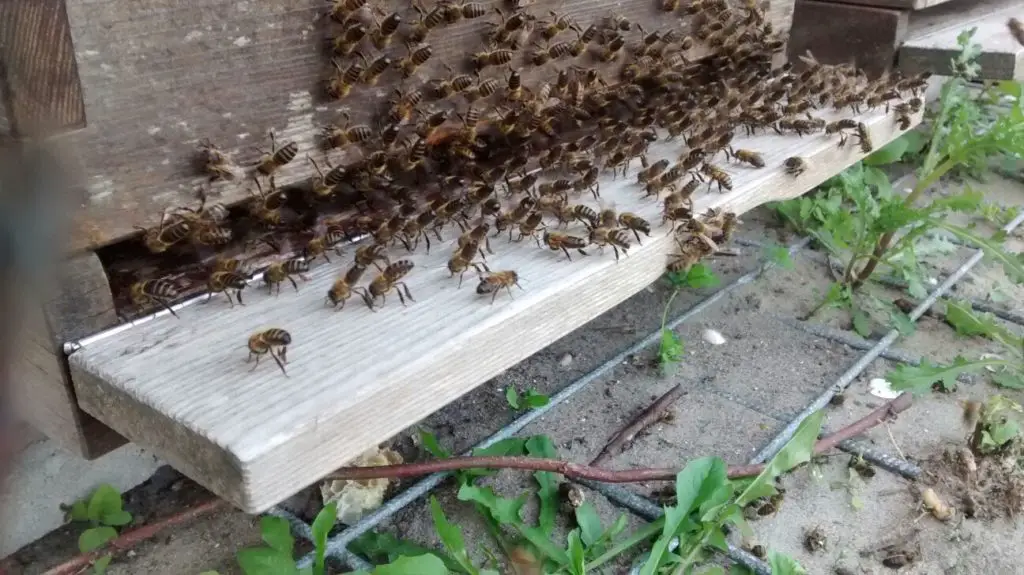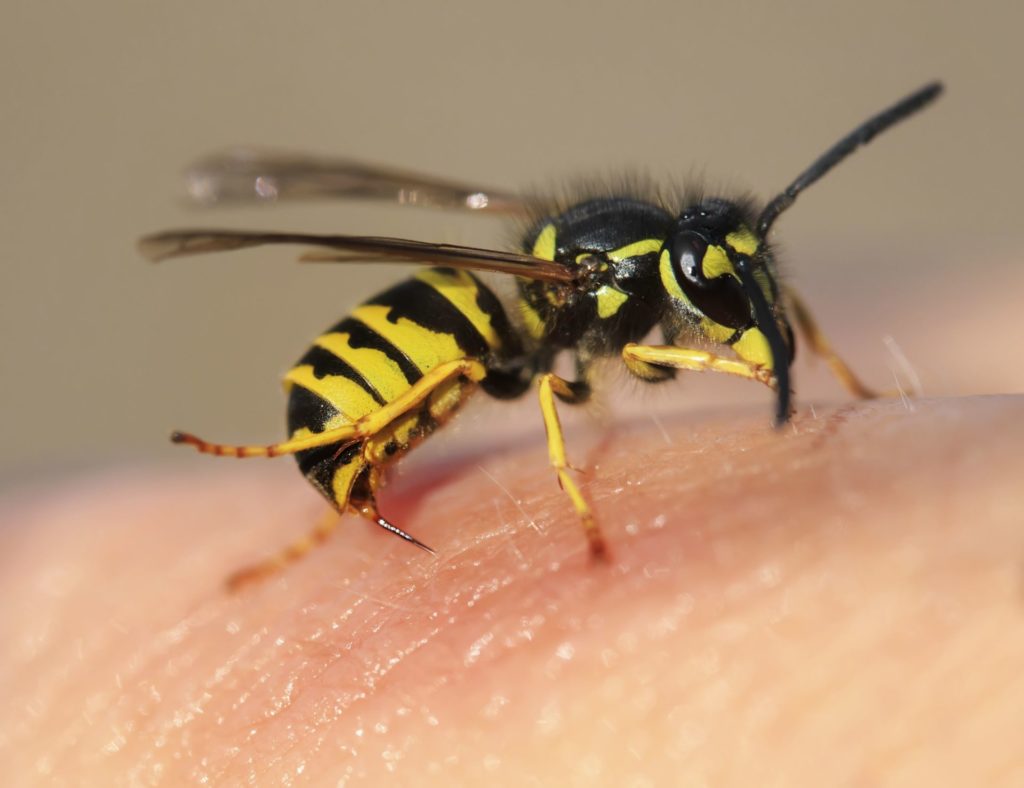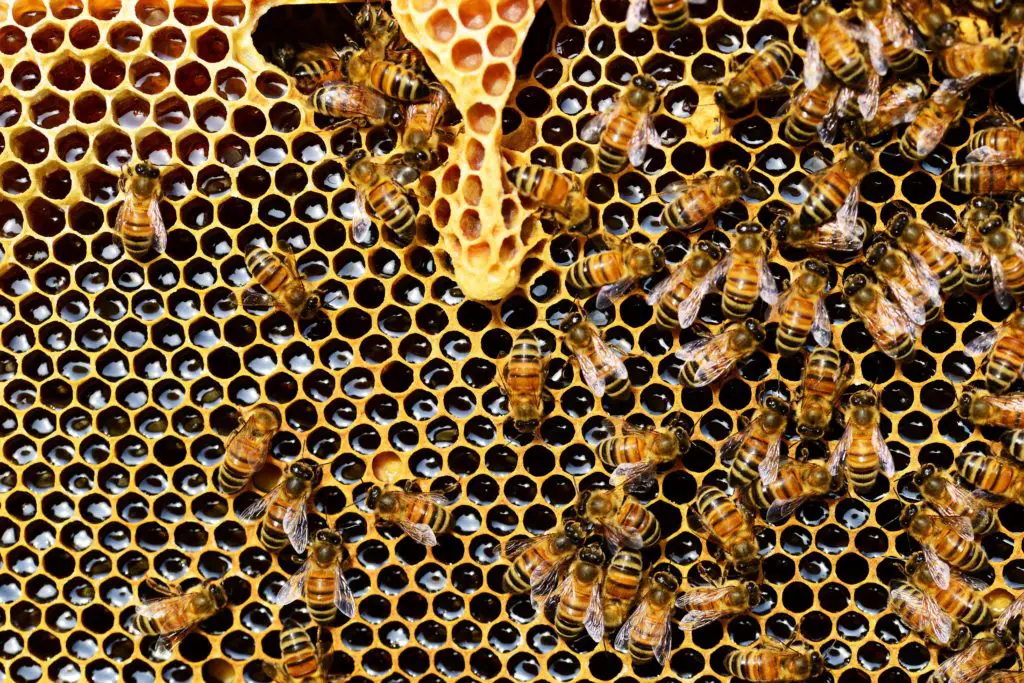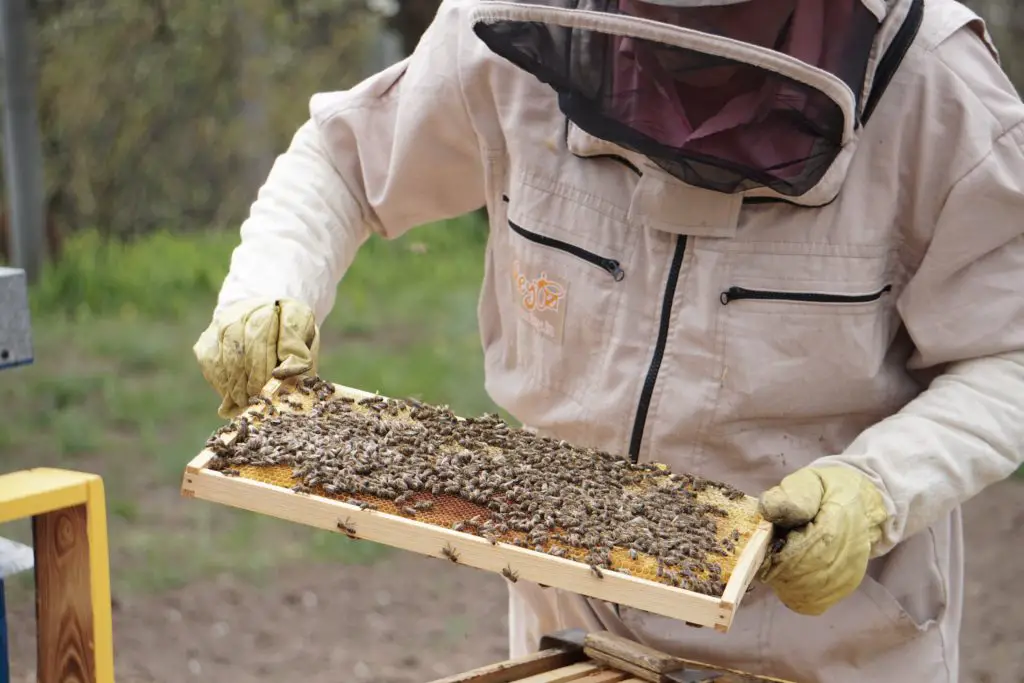Affiliate Disclaimer - As an Amazon Associate I earn from qualifying purchases.
It supports the website. So, Thank you
If someone has ever crossed you and done something to upset you, you have felt very bitter for a long time after the fact. This normal human emotion then causes you to hold a grudge against that person and it can be very difficult to reconcile any sort of relationship.
But humans are complex creatures, capable of experiencing heightened emotions. Surely a bee wouldn’t have the mental capacity to also hold a grudge, would they?
Do Bees Hold Grudges?
Bees have a brain no bigger than the size of a grass seed but they are surprisingly intelligent creatures that are capable of a range of feelings, including holding grudges!
There have been studies that have shown how bees’ emotions can be upended when they experience certain situations. One study demonstrated a group of bees’ unwillingness to approach certain good smelling chemicals after being shaken in said chemicals. These reactions were compared with bees who were exposed to the chemicals without having been shaken beforehand and the results were conclusive. The shaken bees were much more hesitant which shows that they do have a level of emotional intelligence.
With that in mind, it isn’t uncommon for beekeepers to find themselves being attacked by their colony upon inspecting the hive. There are stories littering the internet about such incidents and many worry that the bees’ behavior afterwards could still be aggressive. But is there any truth in this and do bees hold grudges? Let’s find out.
Table of Contents
Are My Bees Holding A Grudge Against Me?
Bees may be small but they’ve developed some amazing tactics in order to protect their hive and their colony.
If you are tending to your bees and for some reason upset them, they may sting. When bees do this, they attach what is known as an alarm pheromone to you. It’s far from anything that you can detect but once you return within a certain proximity of the bees, they’ll quickly pick up on it and realise that you were the one that upset them in the first place.
But why do bees have this alarm pheromone? Well, it’s simple; it’s there for protection. If a single bee is under threat and releases its alarm pheromone, this allows the bee to detect future threats. But what’s really amazing is that other bees from the same colony will also pick up on the scent and go in for the kill as well.
That’s why it’s very difficult to approach a hive that you have already upset because the bees will continue to attack until the pheromone dissipates. According to scientists, a single dose of this pheromone could remain active for up to 24 hours.

This perfectly demonstrates why bees hold a grudge and show us that, if we have upset our colony, we will need to wait before trying again. While leaving it at least 24 hours before going back and trying again will eliminate the risk of the bees continuing with their grudge against you, you’ll have much more success if you wash your bee suit before you return as this will remove the scent of any remaining pheromones.
Are Bees Aggressive?
Bees are very hard working creatures and for them, the most important thing is getting their jobs done. Provided that they are not threatened or aggravated in any way, they are usually quite placid animals.
For the most part, bees will only become aggressive when they feel as though they have to defend themselves. What’s interesting, however, is that there are some individuals or colonies that are aggressive because of a genetic mutation, although this is uncommon in the beekeeping world.
You can tell the difference between an aggressive colony and a defensive one by the way that the bees behave. For example, a naturally angry colony of bees is simply out to get you and will follow you around until you give up. It’s not unheard of for bees like this to follow beekeepers for a significant distance before letting them off the hook.
However, a colony that is reacting in defence will usually be very calm until they come under threat. As you move through your beekeeping journey, you’ll begin to learn what your bees don’t mind and what aggravates them, allowing you to work with them in a way that benefits everyone involved.
How To Inspect A Hive Without Upsetting The Bees
We know you care about your bees; otherwise, you wouldn’t have them. But even the most experienced and well-meaning beekeeper can sometimes upset his or her colony unintentionally. But don’t worry, it’s all a learning curve and there are ways you can ensure that your inspections create as little stress and disruption to the bees as possible.
- Don’t overdo it! During the early part of the season, you really only need to check the hive every seven to ten days. Moving into the later part of the season, you can reduce inspections to every two to three weeks.
- To avoid upsetting your bees, make sure that you only check the hive in suitable weather conditions. Bees are sensitive to things like wind and rain so always avoid checking on days like this. Moreover, the temperature should be at least 60ºF before you go opening the hive.
- In much the same way that bees pick up on each other’s pheromones, they can pick up on ours too. If you approach the hive with any sort of fear, this gives off a sense to the bees who will also become agitated and become more defensive.
- Make sure not to frighten the bees by making any sudden movements. Move slowly but with purpose.
- It surprises a lot of people to learn that bees can be triggered by the carbon dioxide breathed out by humans. This means you will need to wear your veil but also make sure to take slow, deep breaths that cause as little agitation to the bees as possible.
- Bees are also triggered by odors so make sure that you shower before you check the hive. That said, they don’t like strong pleasant odors either so avoid wearing heavily scented products.
Conclusion
If you’ve ever approached your hive to find the bees flying at you in a whirlwind of rage, it’s probably because you’ve done something to upset them. Think about over the previous 24 hours; if you enraged them at any point, then it’s likely that they’re still holding a grudge.
While they may not be experiencing the same emotions a vengeful human would, they’re triggered by alarm pheromones that cause them to continue attacking until the pheromone dissipates. So, if you’ve upset the bees prior, you’ll have to wait at least 24 hours before approaching them again.
So, do bees hold grudges? They absolutely do but the best thing you can do is to make sure that each hive inspection is as stress-free as possible for the bees and you should be OK.




